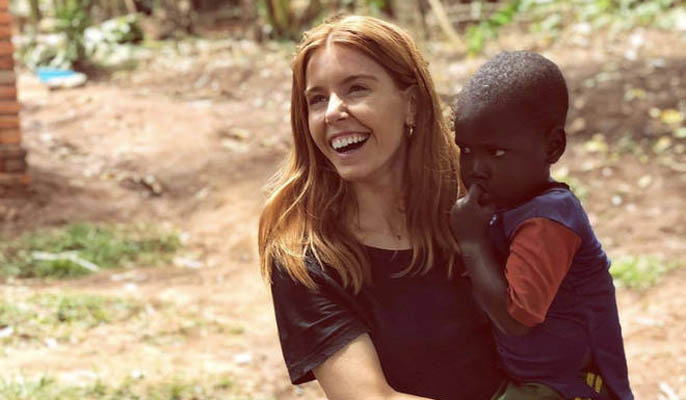
A quick Google of ‘overseas volunteering’ chucks back hundreds of results, all enticing you to escape the mundanity of day-to-day life and join a team of volunteers in a poverty-stricken country. Trust me; do it now.
“A life-changing experience.”
“If you are looking to challenge yourself, you’ve come to the right place.”
“Our Programmes don’t just give you hands-on practical skills but can also contribute towards your university or college qualification.”
Sure, overseas volunteering is a test of your emotional and physical resilience and an opportunity to experience a new culture, but it appeals to many of those on their gap year and is undoubtedly an endeavour of a lifetime. But are the benefits of such fleeting trips worth the strain placed on the host country and its citizens?
Big Cash
It’s a booming business, worth up to $2.6 billion , and the trend is growing. A 2015 study found that 84% of millennials would travel abroad to volunteer. But poverty is now being viewed as a commodity, just as bananas are by Colombia and BMWs by Germany. Why would Colombia stop producing bananas if it is profitable? Why would Germany cease the production of BMWs whilst we still buy them? Likewise, why would poverty-stricken countries work to increase prosperity when poverty is a major source of income? This is exemplified by the fact that, of the 8 million or so children in orphanages around the world, the majority are not orphans at all. Despite a ‘sugar rush’ feeling and popularity on social media, voluntourists who work with orphans do little but fuel a cruel business based on child exploitation.
Unethical Electives
It’s not just orphanages that advertise for volunteers; universities send their medical students on overseas electives. A hugely popular part of medicine and allied health professions’ degrees, it’s an opportunity to learn about a different healthcare system and to treat different diseases and experience different cultures. Aside from this though, they too often perform procedures well out of their realm of expertise. Well-intentioned medical students may too easily justify taking on roles of a qualified doctor when resources and other clinicians are scarce. This is ethically, and sometimes legally, incriminating. It brings to question whether medical electives are in a patient’s best interest.
On top of that, electives aren’t cheap, especially competing with holidays, which are another popular choice among students. Whether this is ethical depends on how the profits are spent. Of course, money is spent by volunteers and this is great for the local community, but the profits should be shared and used to encourage self-sufficiency.
Is it Sustainable?
Would locals not be better placed than foreign volunteers and students in an orphanage or hospital? If there is a lack of workers and helping hands are required, fair enough, but a concern for foreign workers should be the employment of the local area. If their presence simply adds competition in the search for work, then they should evaluate the benefits of what they are doing. The short-term nature of placements may be harmful, too; discontinuity could negatively influence the effectiveness of healthcare.
Western Saviours
We’ve all seen the inspirational pictures of our western kin smiling widely beside frail-looking African children. I can’t help, however, to wonder if this simply perpetuates the idea that western do-gooders are the saviours of the poor, starving people in Africa, who would be completely helpless otherwise. This issue has been raised by the charity RadiAid, whose aim is to “challenge the perceptions of issues of poverty and development, to change the way fundraising campaigns communicate, and to break down dominating stereotypical representations”. Their social media guide is a good starting point to avoid these cliché photos but still appease your friends and social media stalkers.
I am not underestimating the positive impact volunteering overseas can have if undertaken responsibly. Some regions need support and volunteers can offer this, alongside gaining a new perspective of themselves and the world. But there is a fine line between a responsible, ethical placement and an exploitative, harmful one. Volunteers need to question their motives; is this trip self-serving or will it a positive impact? Research about the facilitating company is vital too. Do they have a decent reputation? Are they a charity or private organisation? Ultimately, the aim of volunteering is both to benefit the volunteer and the recipients. If this doesn’t happen, something needs to change.
Ruthie also has a blog where you can read more of her work: www.thousandnotesoneinstrument.wordpress.com










This article is important.
I think people largely get caught up on the whim and ideal of helping and being the hero for people that are portrayed on the media as needy and poverty-stricken. It is an appealing idea, going, helping, having as I believe you put it the “endeavour of a lifetime” and one that has, and still, draws me. This article however was a game changer, something that I thought I’d always do is now something I need to do more research into. Thank you for shining light onto this subject for me.
Sorry to hear you feel that way.
Firstly I will point out that exploi-cation is not a spelling mistake; it is a play on words between exploitation and vacation. Secondly, that was not even my original title; it has been adapted by the editor.
In terms of your thoughts on the article’s substance, I take on board your comments of my lack of solutions given. These are just my thoughts and I want people to think about the issues; I suppose I don’t have any practical solutions as of yet and it is difficult because one could argue that any aid given to resource-poor countries is better than not helping at all. As stated in the article, I just urge people to question their motives and thoroughly research the organisations they are volunteering with. Also I found some of the statistics quite shocking so another purpose of my article was to enlighten people.
If you have any practical solutions, I think it would be great to make them known. And taking into account your comments, I am going to do further research into practical solutions and research reputable companies to volunteer with. Watch this space for a follow-up article!!
This article has definitely changed for the better since I read it originally. Credit where credit is due, this is a much better article. #NotJustAnotherTroll
-‘If this doesn’t happen, something needs to change.’
Yeah, this article.
I gave 2 stars for the token attempt to balance out the unsubstantiated, convoluted, rhetoric with a ‘I am not underestimating the positive impact volunteering overseas can have’.
That’s not to say I fundamentally disagree with the substance of this article. Western tourists with no construction experience have no business building an orphanage. People with no teaching experience are ineffective at teaching English for 1 month stints. The money they would spend travelling would indeed be better spent empowering local people to do those things.
A more thoughtful, substantiated discussion on the pros and cons of voluntourism would have been nice, with suggestions of good programs, specialist opportunities, and how to avoid businesses that prey on poverty. Instead we get this convoluted, accusatory, and virtue signalling rant against people that (if misguided) just want to help.